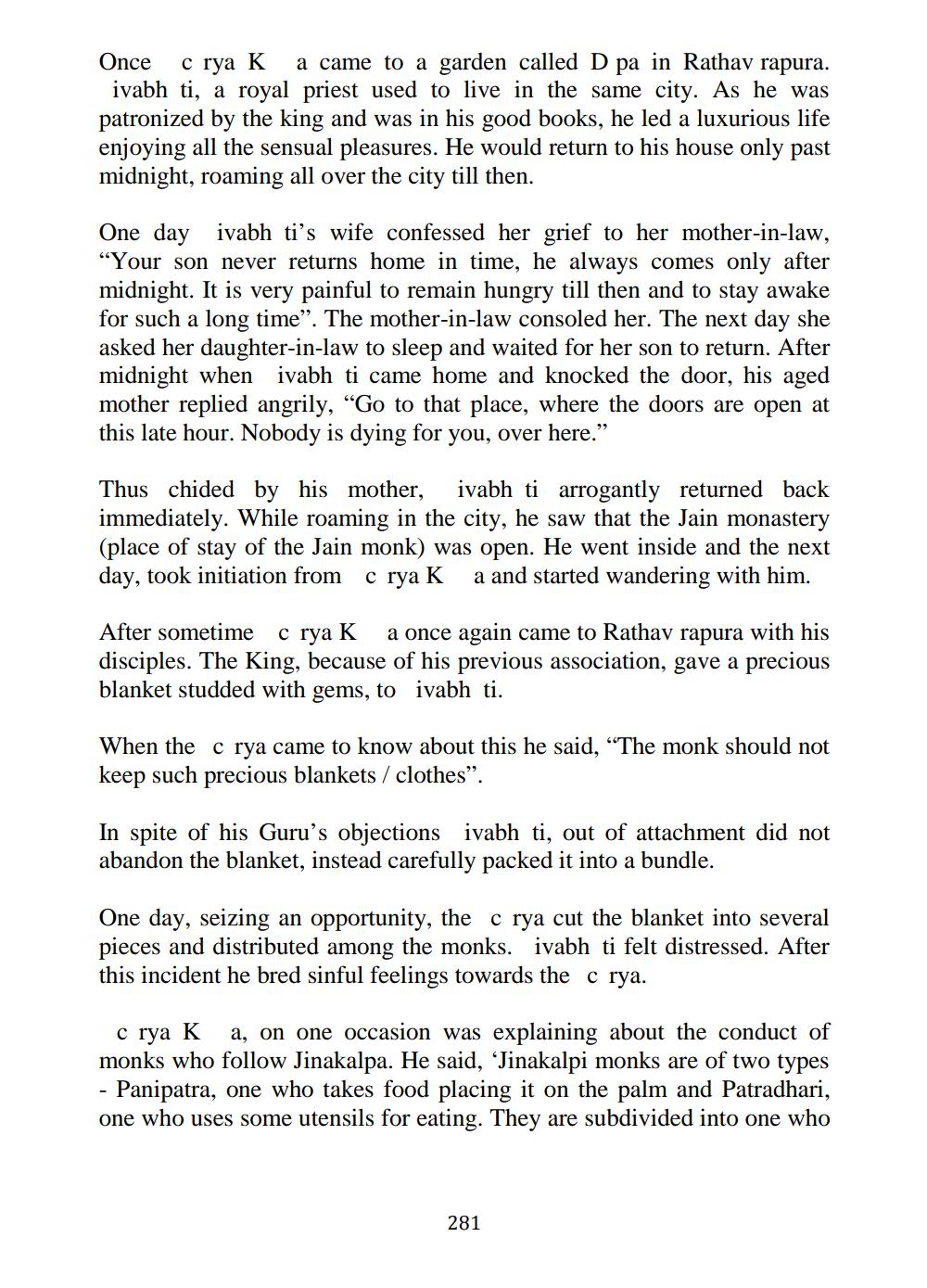________________
Once crya K a came to a garden called D pa in Rathav rapura.
ivabh ti, a royal priest used to live in the same city. As he was patronized by the king and was in his good books, he led a luxurious life enjoying all the sensual pleasures. He would return to his house only past midnight, roaming all over the city till then.
One day ivabh ti's wife confessed her grief to her mother-in-law, "Your son never returns home in time, he always comes only after midnight. It is very painful to remain hungry till then and to stay awake for such a long time”. The mother-in-law consoled her. The next day she asked her daughter-in-law to sleep and waited for her son to return. After midnight when ivabh ti came home and knocked the door, his aged mother replied angrily, “Go to that place, where the doors are open at this late hour. Nobody is dying for you, over here."
Thus chided by his mother, ivabh ti arrogantly returned back immediately. While roaming in the city, he saw that the Jain monastery (place of stay of the Jain monk) was open. He went inside and the next day, took initiation from c rya K a and started wandering with him.
After sometime c rya K a once again came to Rathav rapura with his disciples. The King, because of his previous association, gave a precious blanket studded with gems, to ivabh ti.
When the c rya came to know about this he said, "The monk should not keep such precious blankets / clothes”.
In spite of his Guru's objections ivabh ti, out of attachment did not abandon the blanket, instead carefully packed it into a bundle.
One day, seizing an opportunity, the c rya cut the blanket into several pieces and distributed among the monks. ivabh ti felt distressed. After this incident he bred sinful feelings towards the c rya.
c rya K a, on one occasion was explaining about the conduct of monks who follow Jinakalpa. He said, 'Jinakalpi monks are of two types - Panipatra, one who takes food placing it on the palm and Patradhari, one who uses some utensils for eating. They are subdivided into one who
281




